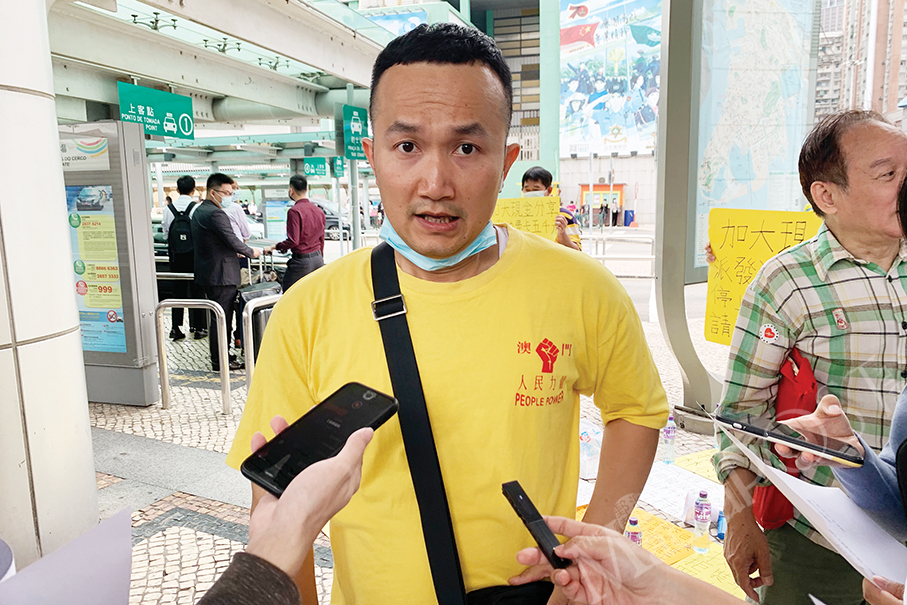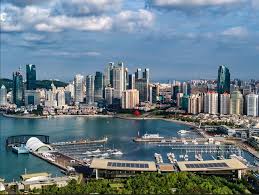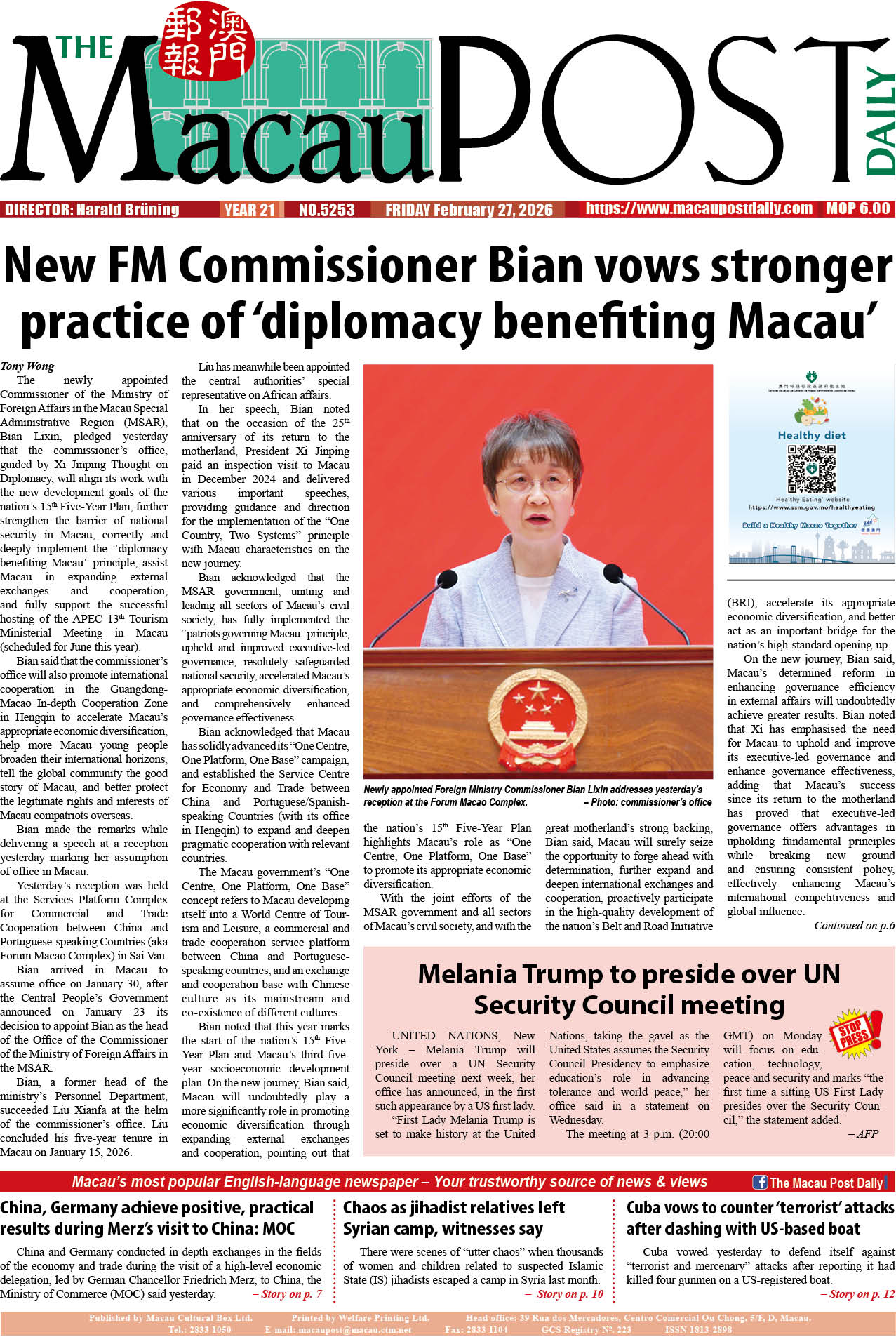The government has announced that it will provide a subsidy for local employees with disabilities whose wages are less than the statutory minimum wage so that their wages will meet the amount when the city’s overall minimum wage system takes effect on Sunday.
The government has drafted an administrative regulation (by-law) on the income subsidy for employees with disabilities, which was published in the Official Gazette (BO) yesterday.
The new administrative regulation will take effect on the same day when the city’s first-ever overall minimum wage law comes into force – November 1.
Government-drafted by-laws, officially known as administrative regulations, do not require the legislature’s approval.
The current statutory minimum wage of 32 patacas per hour only covers cleaners and doormen employed by the property management sector, before it will be extended to all employees in the private sector on Sunday, excluding domestic helpers and employee with disabilities.
A statutory minimum wage for cleaners and doormen employed by the property management sector has been in force since January 1, 2016 when the wage was 30 patacas per hour – or 240 patacas a day or 6,240 patacas a month. The statutory minimum wage for the property management sector’s cleaners and doormen was raised to the current amount of 32 patacas an hour – or 256 patacas a day or 6,656 patacas a month – on September 1 last year. Both the current minimum wage for the property management sector’s cleaners and doormen and the upcoming overall minimum wage cover both local employees and non-resident workers.
The amount of the statutory overall minimum wage, which will start on Sunday, will be 32 patacas an hour – or 256 patacas a day or 1,536 patacas a week or 6,656 patacas a month.
Secretary for Administration and Justice André Cheong Weng Chon announced during a press conference last Friday that the government’s top advisory Executive Council, for which he is the spokesman, has completed its discussion of the draft by-law on an income subsidy for employees with disabilities. Cheong reaffirmed that the government had decided to exclude employees with disabilities from the overall minimum wage bill – which was passed by the legislature in April – as it would discourage employers from hiring them.
Cheong said that the new administrative regulation on the income subsidy for disabled employees aims to encourage those with disabilities to join the job market while allowing them to benefit from wage protection.
According to the new by-law (Administrative Regulation 39/2020), officially known as Income Subsidy Plan for Employees with Disabilities, local employees holding a Disability Assessment Registration Card can apply for the subsidy paid by the government if their wages are less than the statutory overall minimum wage. The subsidy will enable disabled employees to have an income that meets the amount of the statutory overall minimum wage.
A Disability Assessment Registration Card is only issued to local residents. Disabled residents need to be assessed by the Social Welfare Bureau (IAS) first before they can get the card. Under the assessment system, there are six kinds of impairment, namely visual, audio, verbal, physical, intellectual and mental. There are four levels for the six kinds of impairment, namely slight, moderate, severe and profound.
The new by-law will also abolish the current “temporary” income subsidy for low-income local residents, whose monthly income is less than 5,000 patacas, on Sunday when the city’s overall minimum wage system is implemented. The low-income subsidy, which was first issued in 2008 and has been renewed annually on a “temporary” basis since then, enabled the beneficiaries to have a monthly income of 5,000 patacas.








